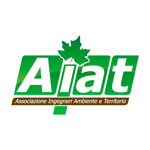
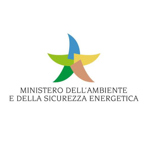
The Ministry of the Environment and Energy Security - MASE - plays a crucial role in the Government's efforts to protect the environment. MASE's actions are focused on preserving the territory and water resources, terrestrial and marine ecosystems, endangered animal and plant species, land and waterway reclamation, reducing sources of pollution and emissions of climate-changing gases, within the context of the global warming challenge. The Ministry ensures the safety of infrastructures, energy and geo-mineral systems, supply efficiency, competitiveness, and the promotion of renewable energy.
Minister: Prof. Dr. Gilberto Pichetto Fratin
WEBSITE

The Campania Region, with its 6 million inhabitants, is one of the most densily populated regions in Southern Italy. The region is renowned globally for its long and fascinating history, the ancient ruins, and the key position occupied in the Italian cultural panorama. Napoli, the regional capital, is a city of remarkable beauty, highly animated and surrounded by an extraordinary natural environment, with the famous volcanic cone of Mount Vesuvius and the deep blue waters of the Gulf of Naples flanked by spectacular coast lines such as the Amalfi coast (Positano, Amalfi and Ravello) and dotted with islands including Capri, Ischia and Procida with their pastel-coloured villages and small towns, nestled between the rocks and the sea. On an environmental level, the Campania Region promulgated Law n.14/2016 to establish an active undertaking geared towards the implementation of a model of circular economy, with associated aims of sustainable development and realization of the principles of a bioeconomy.
President: Vincenzo De Luca
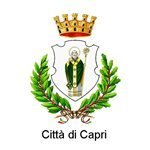
The origins of the island of Capri date back to the 7th – 6th century BC when Aegean people founded a colony on the island. Since then, all subsequent civilizations have left lasting traces (The Roman Emperors Augustus and Tiberius lived here). As Capri evolved from an agricultural and maritime economy towards a tourist economy, it has gained services and infrastructures rendering the area the modern and efficient international tourist resort that it is today. It has been the vacationing place for famous writers, artists, scientists, royalty and politicians from all over the world, lured by the mild climate, the numerous natural wonders and historic monuments. From an administrative point of view, the island is divided into two municipalities, Capri and Anacapri. The town is managed by means of a distribution of tourist flows throughout the year, with particular emphasis on the protection and conservation of the environment. Capri boasts a series of advanced waste collection and sanitation services and modern waste management strategies (separate collection, composting, etc.)
Mayor: Marino Lembo

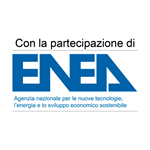
ENEA is the National Agency for New Technologies, Energy and Sustainable Economic Development, a public body aimed at research, technological innovation and the provision of advanced services to enterprises, public administration and citizens in the sectors of energy, the environment and sustainable economic development. Since its foundationin the 1960s, its strengths have been applied research, technology transfer and technical-scientific support to companies, associations, territories, central and local administrations: for this reason - unlike other research institutions - the Agency depends on the Ministry of Economic Development. Among the emerging issues, ENEA supports the productive system as well as public authorities (Ministry of environment and Ministry of economic development in particular) in the transition towards the circular economy and the resource efficiency.
WEBSITE

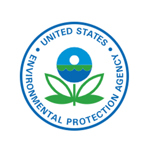
The Environmental Protection Agency is an independent executive agency of the United States federal government tasked with environmental protection matters. The EPA has its headquarters in Washington, D.C., regional offices for each of the agency's ten regions, and 27 laboratories. The agency conducts environmental assessment, research, and education. It has the responsibility of maintaining and enforcing national standards under a variety of environmental laws, in consultation with state, tribal, and local governments. It delegates some permitting, monitoring, and enforcement responsibility to U.S. states and the federally recognized tribes. EPA enforcement powers include fines, sanctions, and other measures. The agency also works with industries and all levels of government in a wide variety of voluntary pollution prevention programs and energy conservation efforts.
WEBSITE
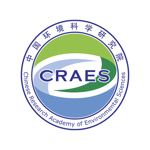


The Korea Society of Waste Management was founded in 1983 as scientific engineering and professional organization dedicated to the advancement of the theory and application of Waste Management Technology. Today the KSWM has more than 5.000 members, 4 regional sections and 7 technical divisions. The KSWM encourages the technical, social and cultural exchanges among the members. It endeavors to improve the technological level of academia and promote the development of technology through educational - industry cooperation.
WEBSITE

The Institute of Waste Management of Southern Africa (IWMSA) is a multi-disciplinary non-profit association that is committed to supporting professional waste management practices. The organisation comprises of voluntary members who promote environmentally acceptable, cost effective and appropriate waste management practices. IWMSA strive towards the protection of the environment and people of southern Africa from the adverse effects of poor waste management by supporting sustainable best practical environmental options. The Institute contribute to the improvement of waste management standards and legislation, support international, national and regional trends in best environmental practices; promote the science and technology of waste management and practice affordable cost effective management of waste. Education and training in the realm of effective and efficient waste management is also a key focus of the organisation.
WEBSITE
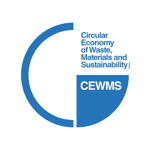
The CEWMS Study Center – Circular Economy, Waste, Materials and Sustainability is a interdepartmental center of the University of Padova (IT) that involves more than 67 professors and researchers, belonging to different departments of the University (Civil, Construction and Environmental Engineering, Industrial Engineering, Technique and Management of Industrial Systems, Biology, Chemical Sciences, Public, International and Community Law, Economic and Business Sciences, Psychology of Development and Socialization, Geosciences, Territory and Agro-forestry Systems). The study center contributes to develop interdisciplinary research and create new synergies, becoming a reference point for the implementation of circular economy practices.
WEBSITE

The Italian Group of Environmental and Sanitary Engineering (GITISA) is the Association of professors in the scientific disciplinary sector of Sanitary-Environmental Engineering from over 25 Italian universities. The aim of the association is to promote and coordinate both teaching and research activities. To this end, it carries out its activity through working groups, assemblies and meetings, collaborating in the organization of conferences, symposiums, summer schools, also jointly with other associations and scientific bodies, both national and international.
WEBSITE
